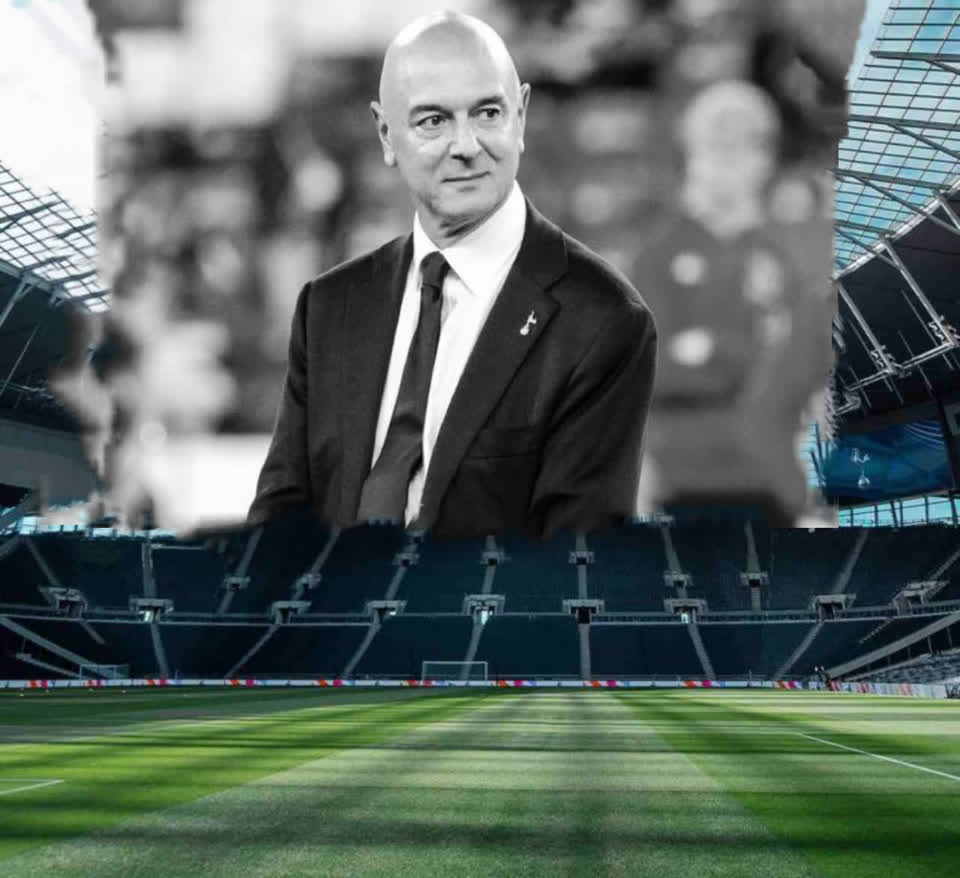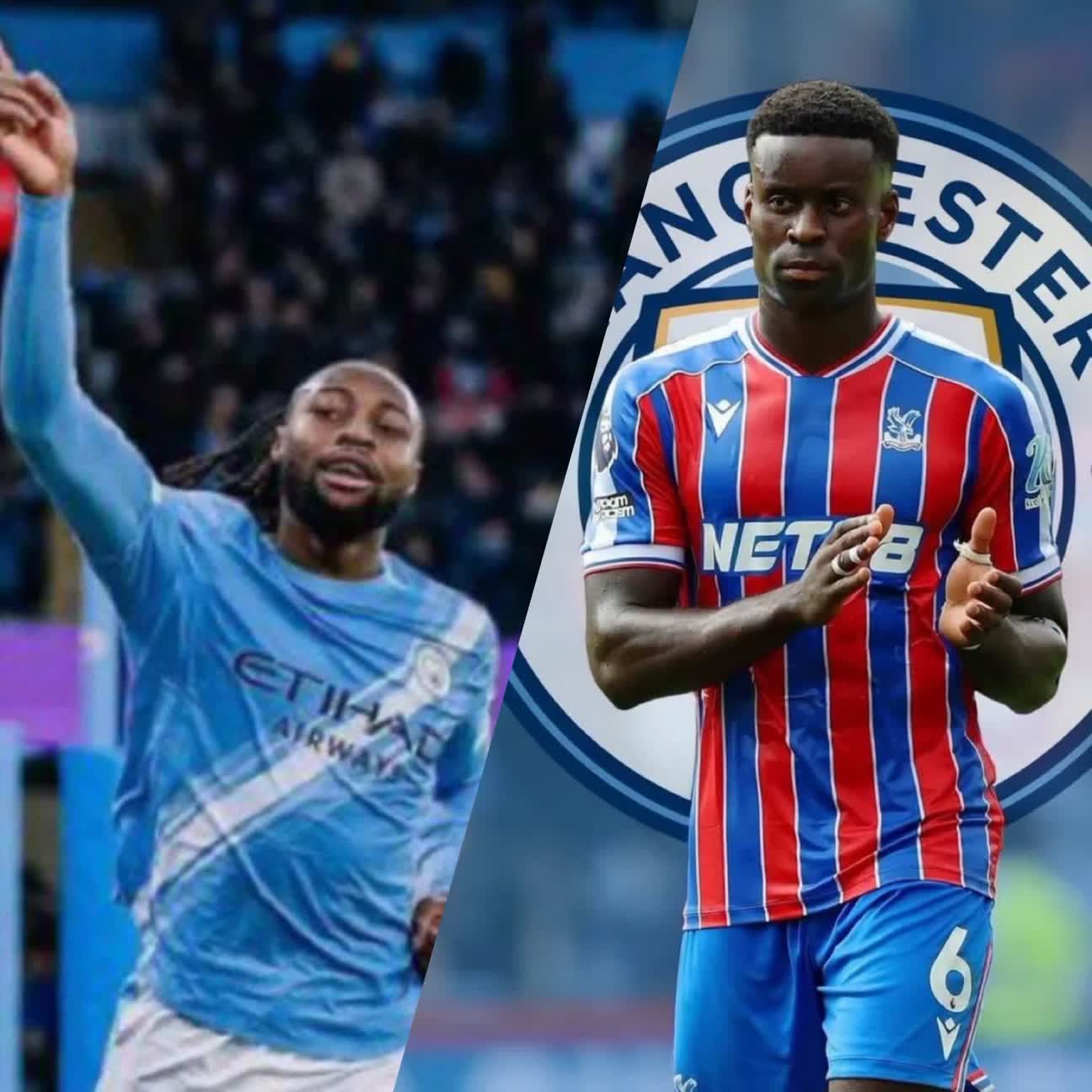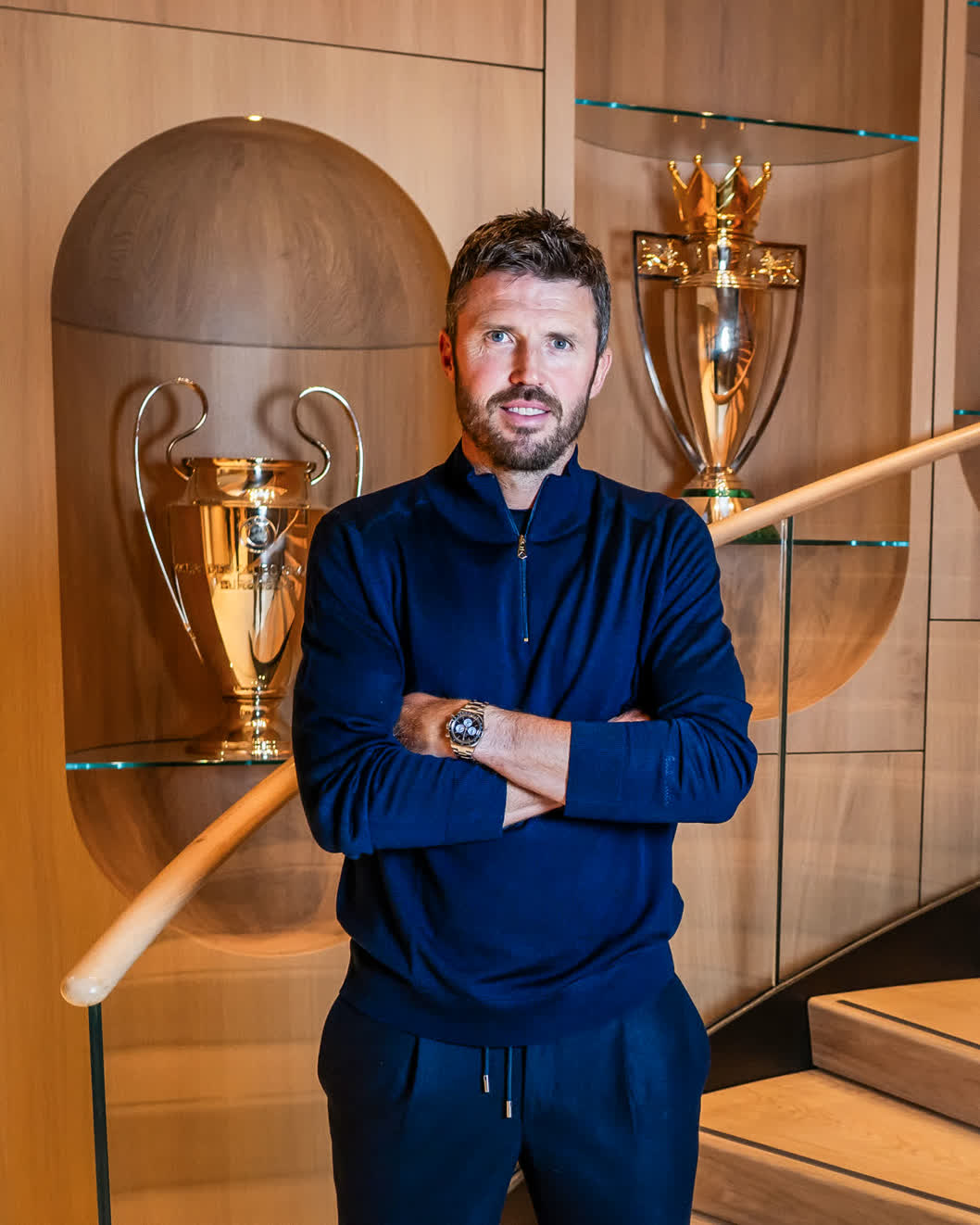With an enduring legacy, Daniel Levy’s reign as the executive chairman of Tottenham Hotspur came to an end on the 4th of September 2025. The club announced that the 63-year-old had stepped down, and will be immediately succeeded by Peter Charrington, who holds the role in a non-executive capacity.
Levy’s tenure lasted more than 24 years (February 2001 to September 2025), becoming the longest-serving executive chairman in Premier League history.
He was so closely involved with the day-to-day running of the club that some followers of soccer thought he owned Spurs, while others assumed that he would not leave unless the club was sold.
Furthermore, he saw the team establish themselves among the Premier League’s “Big Six” — forging a reputation for financial sustainability in an era of increasingly irresponsible and irrational spending.
Why did Levy left Tottenham?
The club’s owners, Joe Lewis and his family, feel that time is due for a change in direction. Although they appreciate the relentless hard work Daniel Levy has done to turn Tottenham into one of the richest and best-run clubs in the world, but they want more sustained success on the pitch.
Also, fans regularly protested against the running of the club amid just two trophies being won in the Levy era. This is despite the club reaching the UEFA Champions League final in 2019 and having a world-class stadium.
A return of only two trophies in almost 25 years is deemed not good enough for a club as big as Tottenham. For instance, Chelsea have won 20 major trophies during the same period of time.
In this post, FootballOrbit examines Daniel Levy’s legacy with Spurs.
Daniel Levy’s background and acquisition of Tottenham
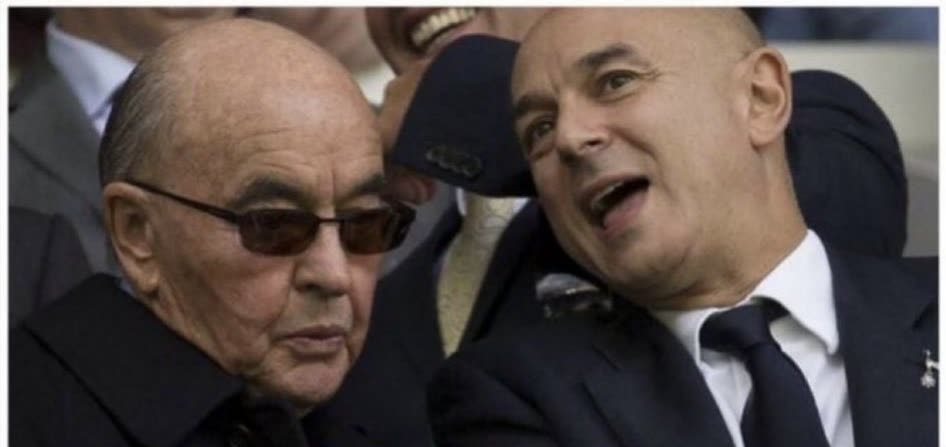
His father owned a clothing retail business named Mr Byrite (later rebranded as Blue Inc). Levy is a lifelong Tottenham Hotspur supporter, as he started attending their matches since when he was seven or eight years old.
After his university education, he became an investor and formed the English National Investment Company (ENIC) with Joe Lewis.
The company started buying stakes in European clubs, investing in Rangers, Slavia Prague, AEK Athens, Vicenza Calcio, and FC Basel.
After two previous rejections, ENIC eventually bought a controlling stake in Tottenham from Alan Sugar, which saw Levy become executive chairman of the club in February 2001.
Later, ENIC’s listing was transferred from the main stock exchange to the AIM index. In 2003, Lewis and Levy, both of whom controlled 52% of ENIC shares, formed Kondar Ltd to buy out the remaining shareholders. A cash offer of £40m was made to take the company back into private ownership.
Afterwards, Lewis and Levy controlled 70.6% and 29.4% of shares respectively in ENIC, which was delisted from AIM and renamed ENIC Group.
Following its purchase of Sugar’s remaining shares in Tottenham Hotspur in 2007, ENIC continued to build up its stake, taking its shareholding to 85%. To fund this investment, it sold its stakes in other football clubs as well as many of its media and entertainment businesses.
Additionally, another reason why the other clubs were sold was due to UEFA rules restricting clubs with the same ownership to compete in the same competition.
Ultimately, ENIC moved Tottenham into private ownership in 2012.
Daniel Levy’s legacy at Tottenham
On-field successes
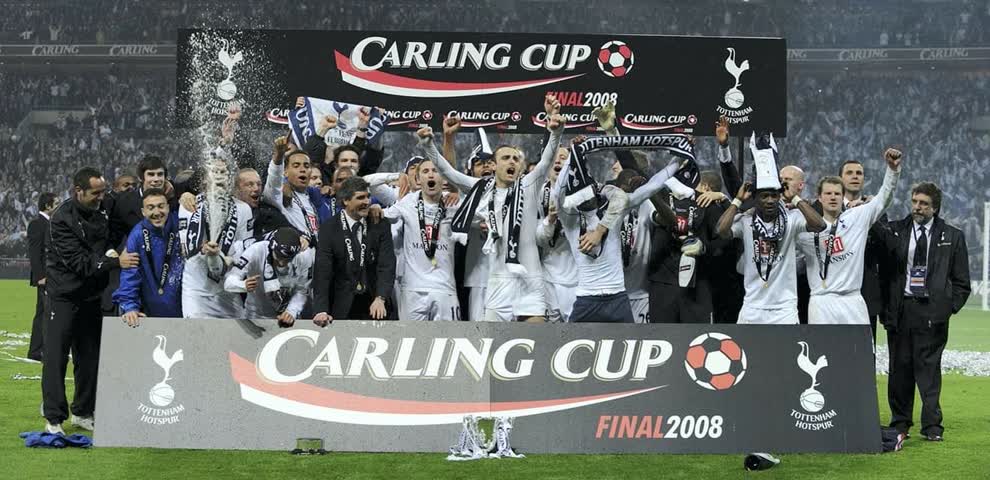
Just 39 years old when he became chairman, Levy’s task was to oversee a grand plan to establish Tottenham as one of the top sides in English football.
Seven years later, Spurs won the League Cup in 2008, the first trophy under Levy’s stewardship and the club’s first in nine years.
Despite winning the League Cup, Juande Ramos was sacked as manager after making the worst start to a league campaign in the club’s history during the 2008/09 season.
His successor, Harry Redknapp, fared better as he guided them to a top-four finish in 2009/10, securing UEFA Champions League qualification for the first time ever.
Furthermore, Tottenham reached the knockout stage of the 2010/11 Champions League, but were eliminated by Real Madrid.
They finished fifth in the Premier League in the 2010/11 season, missing out on Champions League qualification but securing a place in the Europa League.
Pochettino’s golden, but trophyless, era
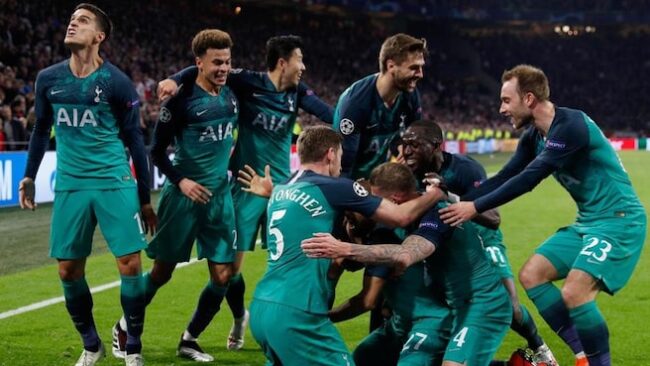
In May 2014, Levy appointed former Southampton manager Mauricio Pochettino as manager.
The Argentine was a perfect fit for the club’s vision, and ushered in a “golden era”.
Under Pochettino, youngsters from the club’s academy went on to establish themselves in the first team; notably Harry Kane, Ryan Mason, Nabil Bentaleb and Andros Townsend.
Likewise, Tottenham reached the League Cup final and qualified for Europe with a fifth-place finish in his first season at the helm.
Thereafter, Pochettino’s side challenged for the Premier League title in both the 2015/16 and 2016/17 seasons — with their squad having the youngest average age in the league.
In the latter season, Tottenham finished as runners-up in the league, their highest league position since 1962/63.
Moreover, they consistently finished in the top four since the 2015/16 season, thus regularly qualifying and participating in the Champions League.
The apex of Mauricio Pochettino’s Golden Generation was when they reached the Champions League final for the first time ever in 2018/19 — after a thrilling semifinal against Ajax that produced one of the most epic and dramatic last-minute goals in football history.
Unfortunately, Tottenham lost 2-0 to Liverpool in the final.
Tottenham’s Golden Generation of Daniel Levy’s era include the likes of Harry Kane, Dele Alli, Son Heung-min, Christian Eriksen, Toby Alderweireld, Kyle Walker, Mousa Dembele, Hugo Lloris, Lucas Moura, Kieran Trippier, Eric Dier, Moussa Sissoko, Danny Rose, Erik Lamela, Victor Wanyama, and Jan Vertonghen.
Developing world-class players
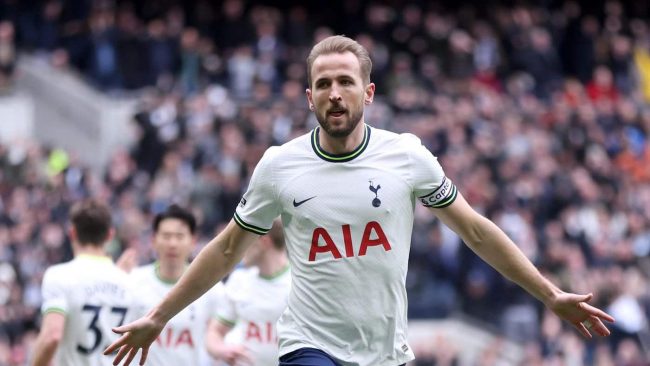
Levy was known for targeting and recruiting young talented players and developing them into superstars.
Budding starlets were afforded enough time and opportunity to realise their potentials at White Hart Lane.
Some of them that the club could not hold on to, were sold for significant sums; the likes of Luka Modric, Gareth Bale, Kyle Walker, Michael Carrick and Dimitar Berbatov were all sold to Real Madrid, Manchester City and Manchester United respectively.
Even Harry Kane cost Bayern Munich €110m in 2023, despite approaching his thirties.
Financial prudence: The hallmark of Daniel Levy’s Tottenham reign
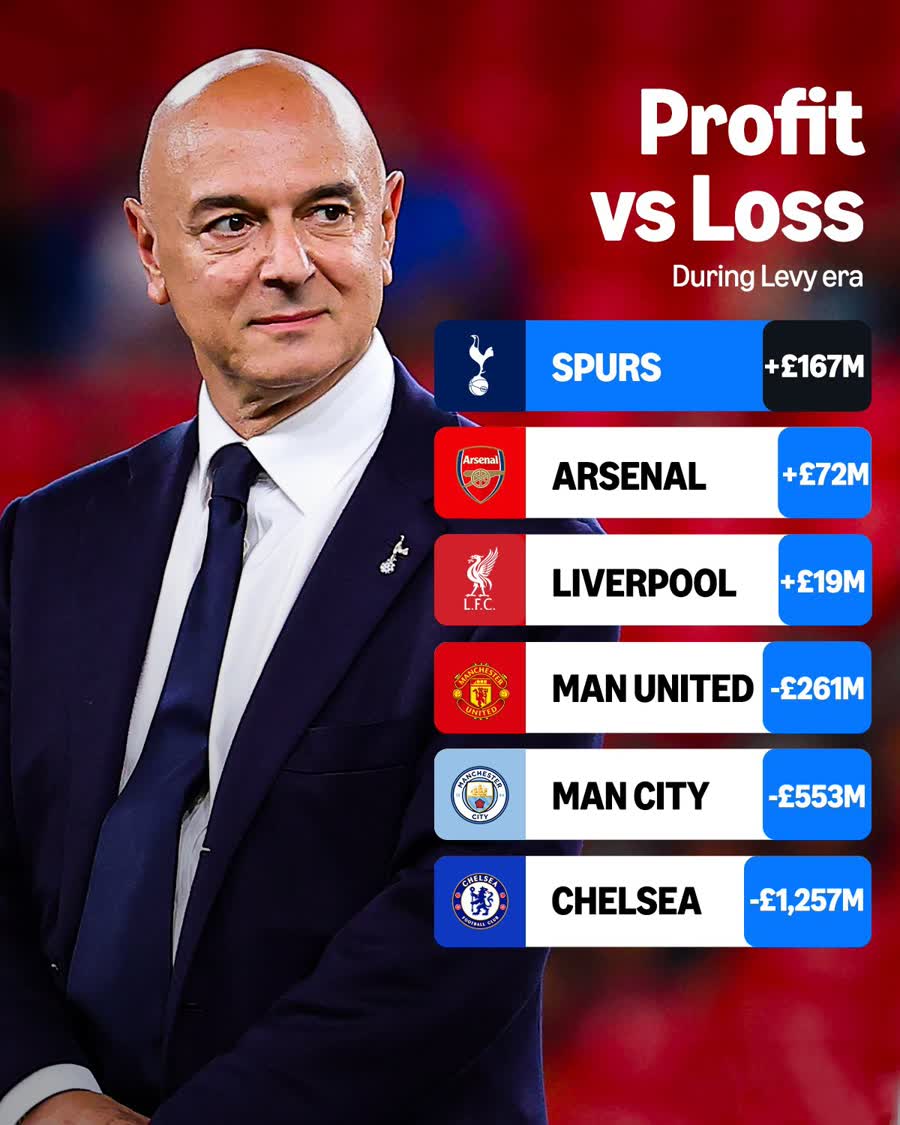
Notably, Levy maintained a relatively modest wage structure at Tottenham, compared to the other Big Six clubs of the Premier League. He even described the spending by the league’s other clubs as unsustainable.
Moreso, he is an advocate of enhanced financial controls for all owners, to ensure the long-term financial stability of clubs.
Levy has been instrumental in attracting corporate partners to the club in multi-million pound sponsorship deals, including current partners Nike and AIA.
He negotiated multiple shirt sponsorships in 2010, agreeing a deal with software infrastructure company Autonomy as the club’s shirt sponsor in the Premier League, while Investec became shirt sponsor for Champions League and domestic cup competitions.
In 2017/18, Tottenham made a profit of £113 million (£138.9m pre-tax), a world record for a football club. By 2023, the yearly revenue for the club had reached a record £549.6 million.
The club was valued at around £80 million when ENIC first attempted to buy a stake in 1998, and by 2025, its valuations had increased to £2.6 billion ($3.3 billion). Spurs are one of the top 10 richest football clubs in the world in 2025.
Criticism of Levy’s frugality
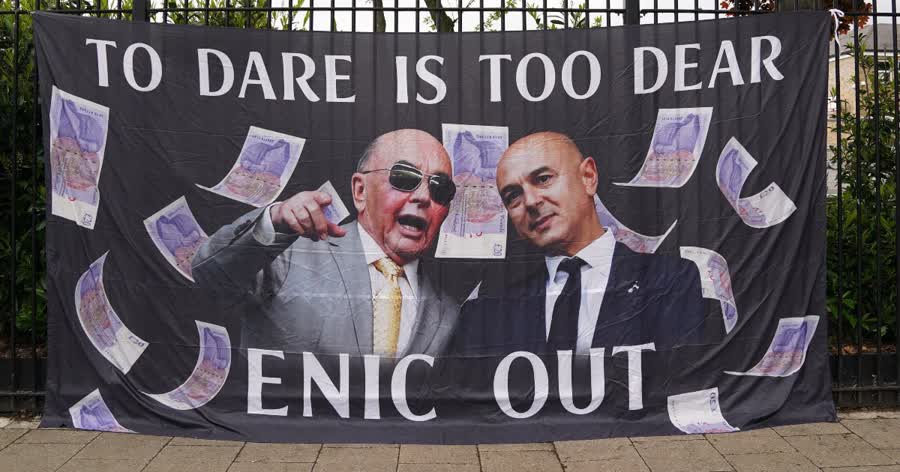
During his tenure, Daniel Levy was constantly criticised by Tottenham supporters and pundits alike for not investing more money in the transfer market. They believed that he focused on off-field financial gains at the detriment of competing favourably on the pitch.
For instance, in the first four years of Pochettino’s tenure as manager, Spurs spent £254million in transfer fees while receiving £225m, to leave a net spend of £29m.
This is considerably lower than the other major clubs in the same period: Manchester City (£518m), Manchester United (£466m), Arsenal (£225m), Chelsea (£200m) and Liverpool (£183m) have all overspent Spurs by at least £100m (net spend) .
In 2018, Tottenham shockingly became the first Premier League club to make no signings during a summer transfer window.
But Levy always refuted such criticism, citing the construction of their new stadium as the reason why they have not been spending heavily on players.
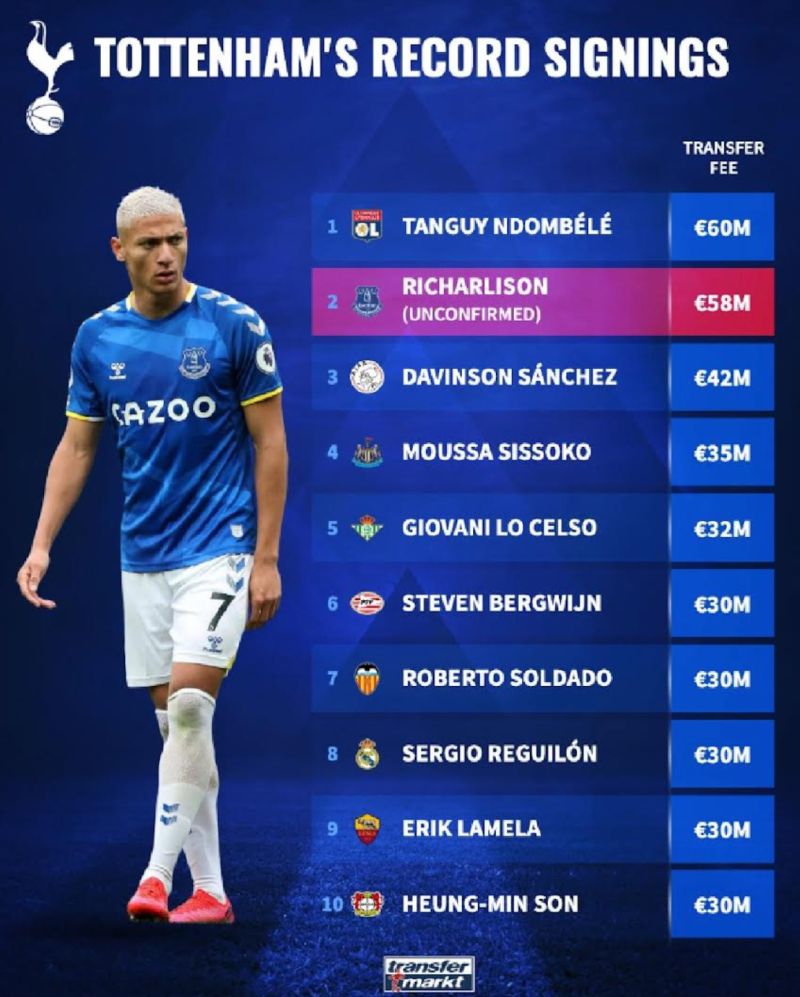
That seems to be the case truly, as according to Transfermarkt, Tottenham’s net spend in the past five years (after the stadium project was completed) is €653m — a figure only surpassed by Manchester United (€782.9m) Arsenal (€772.8m) and Chelsea (€743.5m).
Levy’s fearsome transfer negotiations
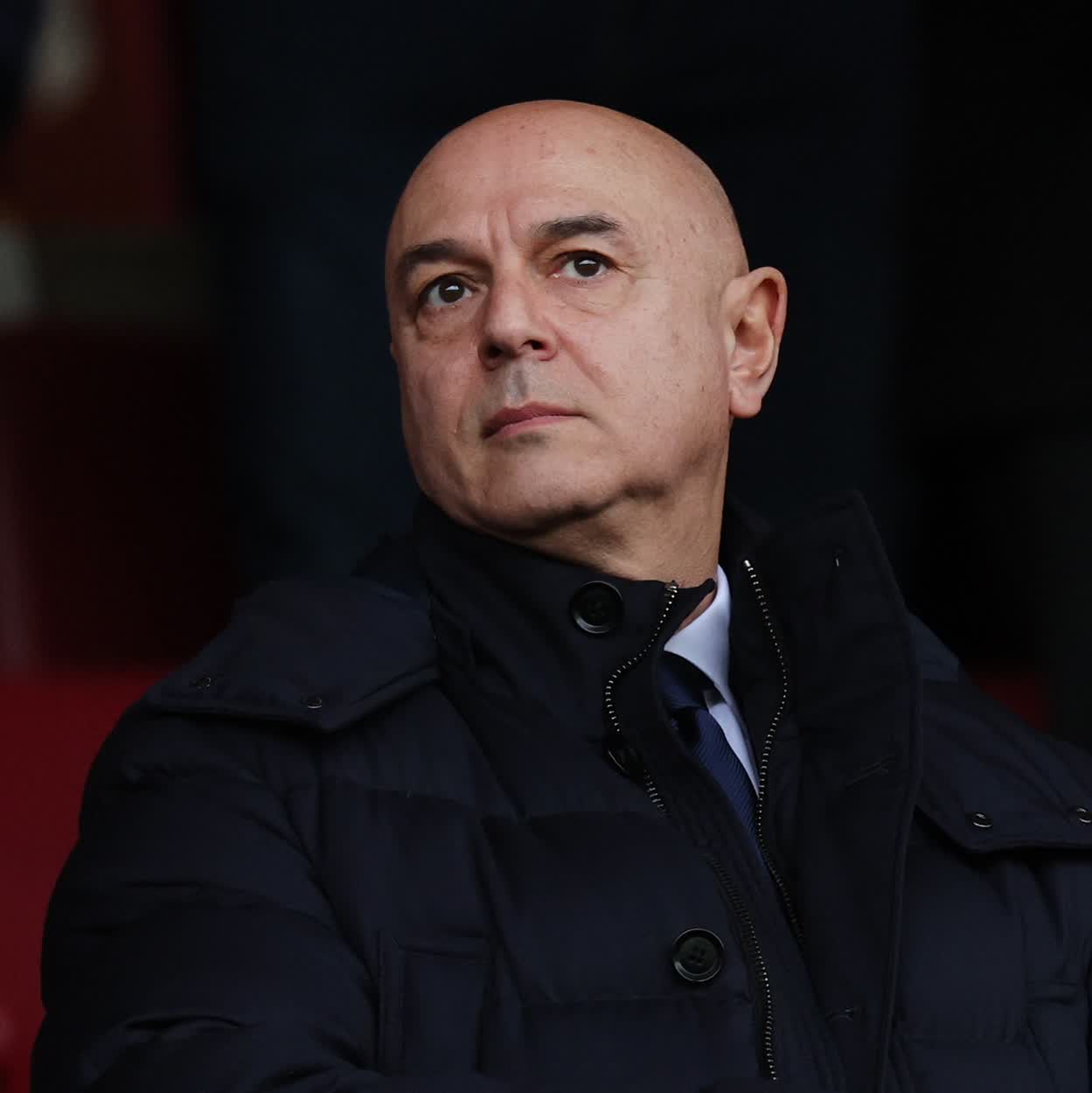
He had a reputation for tough negotiations in the club’s transfer dealings, his hard-line stance made him feared for being difficult to deal with.
Famously, former Manchester United manager Sir Alex Ferguson described negotiating with Levy over the transfer of Dimitar Berbatov as “more painful than my hip replacement”.
In 2013, Levy negotiated a then-world record fee of £86 million for the transfer of Gareth Bale to Real Madrid.
Levy Time
Furthermore, he is particularly renowned for his last-minute dealings on deadline days, with deadline day often referred to as “Levy time” by Tottenham fans.
Rafael van der Vaart was his most famous acquisition on the final day of the transfer window, and the midfielder proved to be a phenomenal bargain for £8m in 2010.
Likewise, the likes of Jermain Defoe, Hugo Lloris and Moussa Sissoko also proved excellent value deadline day additions, though others like Georges-Kevin N’Koudou and Fernando Llorente failed to spark.
Daniel Levy’s greatest legacy: Tottenham Hotspur Stadium
Levy oversaw the construction of a new, modern and larger-capacity stadium to replace White Hart Lane, from its design to the final construction.
The construction of the new venue started in 2015. For the 2017/18 season, Levy negotiated the club’s move to Wembley Stadium for one year to allow demolition of the old venue and the completion of a new stadium on the same site as White Hart Lane.
Additionally, during their time at Wembley, Tottenham broke the Premier League attendance record several times, as well as the Champions League attendance record for a British club.
The new stadium officially opened on the 3rd of April 2019, and was named Tottenham Hotspur Stadium.
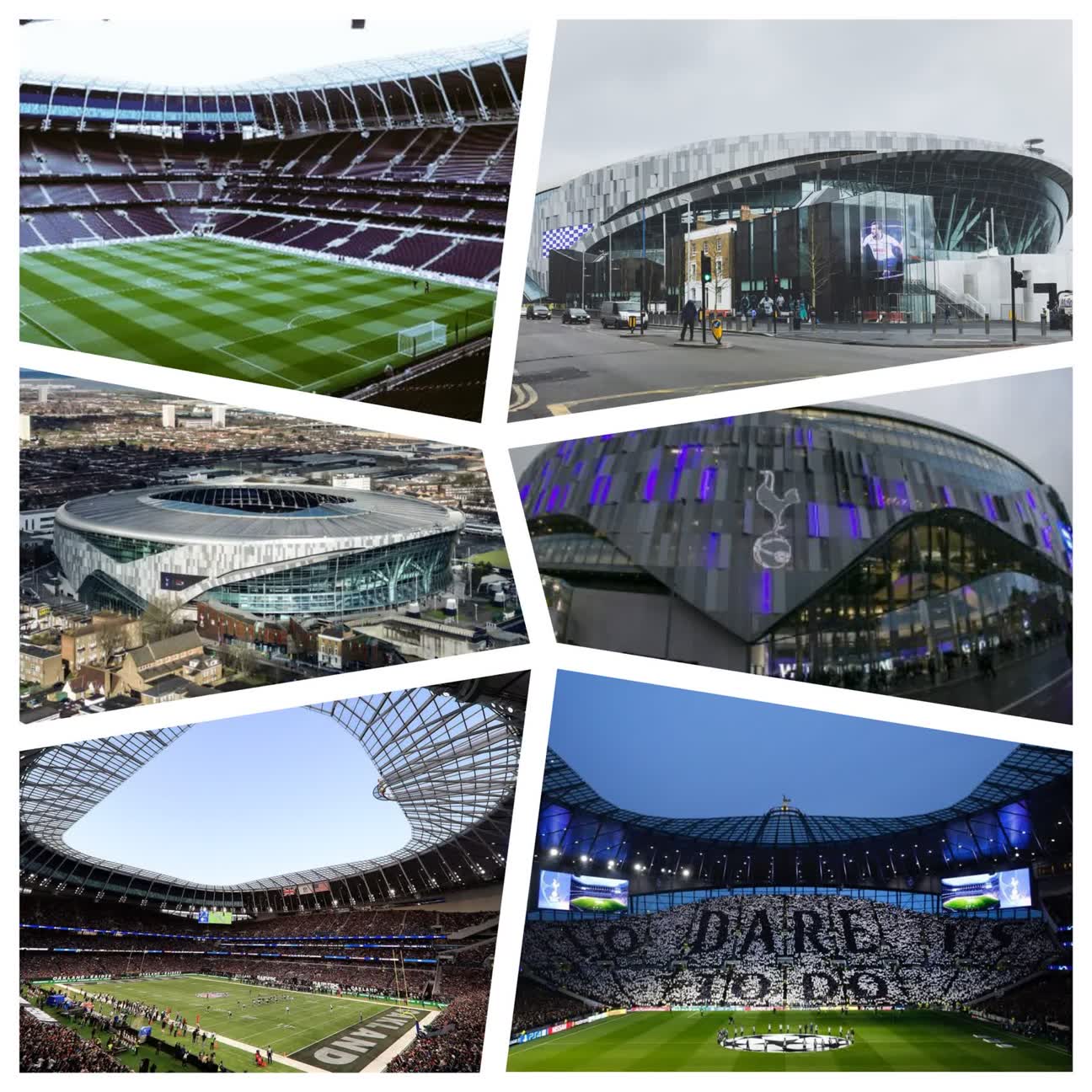
It includes the world’s first dividing retractable pitch to accommodate other leading sports, notably American football (NFL) games, rugby, boxing, and entertainment events.
The design allowed the club to agree a ten-year deal to host NFL matches at their new home.
The stadium is reported to have costed £1.2 billion, and a financial analysis in February 2021 indicated that construction of the stadium is largely responsible for burdening Tottenham with a £1.177 billion debt, the biggest of all European clubs.
With a seating capacity of 62,850, it is the third largest football stadium in England and the largest club ground in London.
Furthermore, the stadium is one of the venues chosen to host the matches of UEFA Euro 2028, scheduled to be held in the United Kingdom and Ireland.
The name “Tottenham Hotspur Stadium” was meant to be temporary, the intention being to sell the naming rights to a sponsor, but that is yet to materialise.
Moreso, the club estimated that the stadium will inject around £293 million a year into the community in Tottenham, and create thousands of jobs.
Managers that served under Daniel Levy at Tottenham
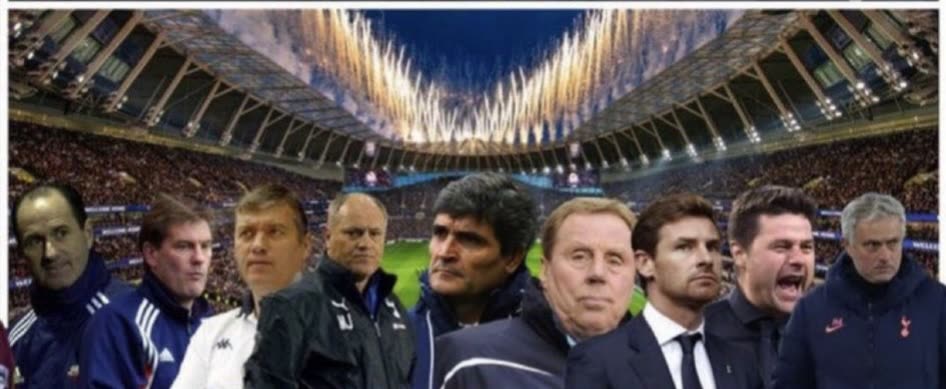
Never afraid of firing, Levy appointed 18 managers at Tottenham during his 24-year tenure!!! Fourteen of them were permanent, while four were caretakers.
This includes George Graham, who was in charge when the businessman took the reins in North London, but got sacked for breach of contract.
David Pleat took in two caretaker spells at the club, both following Graham’s departure in 2001 and after Glenn Hoddle’s exit in 2003.
Jacques Santini lasted a mere 13 games, before Martin Jol was promoted from being the Frenchman’s assistant. Jol lasted three years, but was infamously sacked at half-time of a UEFA Cup game, to the consternation of many fans.
Also, Clive Allen took two caretaker spells in, while Juande Ramos won the 2008 League Cup. His league form was atrocious, though, and Harry Redknapp was then drafted in, taking Spurs into the Champions League before a brief, misguided flirtation with the England national team job, as well as failure to agree terms for a new deal, saw him out.
Andre Villas-Boas and Tim Sherwood then had short reigns – before Pochettino was poached from Southampton.
In November 2019, Pochettino was also sacked, and with Lewy and the fans desperate for a trophy; Jose Mourinho was appointed.
After 17 months in charge, Mourinho was sacked in April 2021 after a spate of losses and a disappointing second half of the 2020/21 season.
Mourinho’s sacking left a bad taste in the mouths of many, as he had led the team to the League Cup final but was dismissed before the showdown.
Former player Ryan Mason served as interim manager for the rest of the season, losing to Manchester City in the League Cup final.
In June 2021, Levy appointed Nuno Espírito Santo on a two-year deal. But Nuno was sacked on the 1st of November 2021 following a run of poor results which saw Tottenham lose four out of six previous Premier League games.
Antonio Conte was next, on an 18-month deal with an option to extend further. The team’s form improved under Conte and resulted in Tottenham qualifying for the Champions League.
But the Italian was also shown the exit door in March 2023 following a run of poor results and Champions League elimination at the hands of Milan.
Conte’s assistant, Cristian Stellini, was appointed as interim manager with the intention of finishing the season, but was dismissed following a 6-1 defeat to Newcastle. Ryan Mason returned again in his stead.
Ange Postecoglou was appointed in June 2023. The Australian won the 2025 Europa League, Tottenham’s first trophy in 17 years, but was sacked in June 2025 for the poor results in the Premier League.
After Postecoglou’s dismissal, Levy brought in Thomas Frank from Brentford as the new head coach.
Levy’s departure
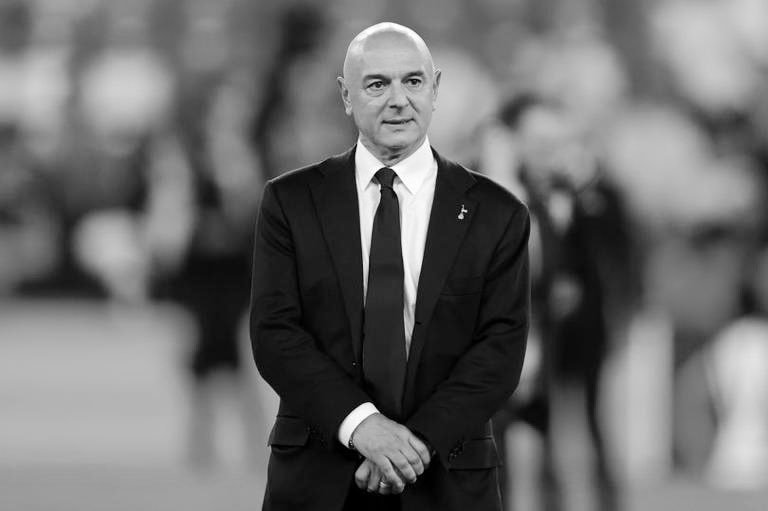
On the 4th of September 2025, Tottenham sent shockwaves around the world after announcing that Daniel Levy has stepped down from his post as executive chairman of the club.
Internally, the decision to remove Levy was not taken overnight. The Lewis family’s increased scrutiny into the performance of the club was not as sudden as it might look from the outside.
In January this year, they employed an American management consultancy firm Gibb River to examine why Tottenham had been underperforming on the field in recent years. This coincided with the appointment of the Lewis family’s man Charrington — now the non-executive chairman — onto the board.
More significant boardroom changes followed, with the arrival of new CEO, Vinai Venkatesham, and the departure of long-standing executive director, Donna-Maria Cullen.
The Lewises believe that Tottenham were not performing as they should do, that Levy had been given ample time to run the club in his own way, and that it was time for a different approach.
In recent years, fans had been frustrated by the lack of silverware, and perceived lack of investment to strengthen the squad to be able to compete at the highest level.
LevyOut would periodically, but consistently, trend on X. Tottenham matches would often be accompanied by voices of dissent.
In January, disgruntled fans produced a banner during a 2-1 home defeat to Leicester City — who would later be relegated — which read: “24 years, 16 managers, one trophy: time for change.”
Despite the turmoil, Spurs went on to win the second trophy of Levy’s tenure in May when Tottenham beat Manchester United in the Europa League final.
But the manager was sacked 16 days later as the triumph failed to mask a dreadful 17th place finish in the Premier League.
And Levy also paid dearly for it too.
Daniel Levy’s legacy will last forever
Spurs played in European competitions in the last 18 of 20 seasons of Daniel’s stewardship.
Furthermore, the team won the Europa League in his final season.
In 2007, he lobbied successfully for Premier League clubs to be allowed to name seven players on the substitute bench, in order to encourage the inclusion of youngsters; the change was ratified in February 2008.
Levy took Tottenham from midtable mediocrity to become one of football’s most recognizable clubs. More remarkable was that he achieved that without the cash injection of a nation-state or a cash flush oligarch.
Football finance expert Kieran Maguire went as far as saying that Levy’s tenure saw Tottenham becoming the “most profitable club in Premier League history” because of the money their new stadium generates, a historically lower wage structure and a “degree of caution” on transfer spending.
He described Spurs as a “superb cash-making machine” who have “outperformed any other club in England”.
What next for Levy?
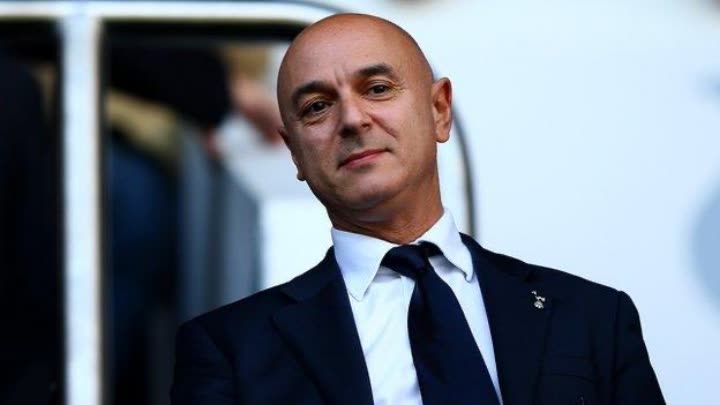
Levy is still only 63, so he still has plenty to offer the game. He still owns a significant stake in Tottenham, and will not be short of offers if he wants to continue working in the game.
Spurs confirmed upon Levy’s exit that there were no further accompanying changes to the ownership of the shareholder structure of the club. ENIC own 86.58% of Tottenham, meanwhile, Levy owns 29.88% of ENIC, though it remains to be seen whether the club will woo new investors in the months ahead.
Could Tottenham be sold?
Tottenham’s owners are reportedly open to the idea of attracting fresh investment, or even selling the club.
There are rumours of multiple interested parties from various places including the Middle East and the United States.
Some in the club are said to be frustrated by the lack of progress in these talks and felt Levy’s approach was a contributing factor. It was even suggested that the delay became one point of tension between the Lewis family and Levy.
Conclusion
Though, despite all Levy’s off-field success, it is undeniable that a club the size of Tottenham should have won more trophies during the past 25 years. Two trophies and 18 managers is simply not an acceptable return, even though without the kind of financial backing some of their rivals have received, Spurs have been one of the best-run clubs in the world.
However, Levy has forever etched his name into Tottenham’s history, and his greatest legacy, the new stadium, will ensure that he will always be remembered fondly.

